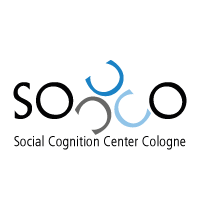Publications
→ Find a selection of the Group Chairs' key publications below.
→ Click on a name to get to the full list of publications of the corresponding group.
- Dorrough, A. R., Köbis, N., Irlenbusch, B., Shalvi, S., & Glöckner, A. (2023). Conditional bribery: Insights from incentivized experiments across 18 nations. Proceedings of the National Academy of Sciences, 120(18), e2209731120. https://doi.org/10.1073/pnas.2209731120 [data and materials on OSF]
- Genschow, O., Cracco, E., Verbeke, P., Westfal, M., & Crusius, J. (2021). A direct test of the similarity assumption—Focusing on differences as compared with similarities decreases automatic imitation. Cognition, 215, Article 104824. https://doi.org/10.1016/j.cognition.2021.104824
- Unkelbach, C., Alves, H., & Koch, A. (2020). Negativity bias, positivity bias, and valence asymmetries: Explaining the differential processing of positive and negative information. B. Gawronski (Ed.), Advances in Experimental Social Psychology (Vol. 62, pp. 115-187). Cambridge, MA: Academic Press.
- Landy, J. F., Jia, M. (L.), Ding, I. L., Viganola, D., Tierney, W., ... Dohle, S., ... Uhlmann, E. L. (2020). Crowdsourcing hypothesis tests: Making transparent how design choices shape research results. Psychological Bulletin, 146(5), 451–479. https://doi.org/10.1037/bul0000220
- Lammers, J., Crusius, J., & Gast, A. (2020). Correcting misperceptions of exponential coronavirus growth increases support for social distancing. Proceedings of the National Academy of Sciences, 117(28), 16264 - 16266. https://doi.org/10.1073/pnas.2006048117 [data on OSF]
- Unkelbach, C., Koch, A., & Alves, H. (2019). The evaluative information ecology: On the frequency and diversity of “good” and “bad”. European Review of Social Psychology, 30, 216-270.
- Dohle, S., Diel, K., & Hofmann, W. (2018). Executive functions and the self-regulation of eating behavior: A review. Appetite, 124, 4–9. https://doi.org/10.1016/j.appet.2017.05.041
- Jekel, M., Glöckner, A., & Bröder, A. (2018). A new and unique prediction for cue-search in a parallel-constraint satisfaction network model: The attraction search effect. Psychological Review, 125, 744–768. https://doi.org/10.1037/rev0000107
- Genschow, O., Rigoni, D., & Brass, M. (2017). Belief in free will affects causal attributions when judging others' behavior. Proceedings of the National Academy of Sciences, 114, 10071–10076. https://doi.org/10.1073/pnas.1701916114 [data and materials]
- Baldwin, M., & Lammers, J. (2016). Past-focused environmental comparisons promote proenvironmental outcomes for conservatives. Proceedings of the National Academy of Sciences, 113, 14953–14957. https://doi.org/10.1073/pnas.1610834113
- Dorrough, A., & Glöckner, A. (2016). Multinational investigation of cross-societal cooperation. Proceedings of the National Academy of Sciences, 113, 10836–10841. https://doi.org/10.1073/pnas.1601294113
- Schmittat, S. M., & Englich, B. (2016). If you judge, investigate! Responsibility reduces confirmatory information processing in legal experts. Psychology, Public Policy, and Law, 22, 386–400. https://doi.org/10.1037/law0000097
- Schneider, I. K., Veenstra, L., van Harreveld, F., Schwarz, N., & Koole, S. L. (2016). Let's not be indifferent about neutrality: Neutral ratings in the International Affective Picture System (IAPS) mask mixed affective responses. Emotion, 16, 426–430. https://doi.org/10.1037/emo0000164
- Lange, J., & Crusius, J. (2015). The tango of two deadly sins: The social-functional relation of envy and pride. Journal of Personality and Social Psychology, 109, 453-472. https://doi.org/10.1037/pspi0000026 [pdf] [open data and materials]
- Open Science Collaboration (2015). Estimating the reproducibility of psychological science. Science, 349, aac4716. https://doi.org/10.1126/science.aac4716 [Crusius, Glöckner]
- Schneider, I. K., van Harreveld, F., Rotteveel, M., Topolinski, S., van der Pligt, J., Schwarz, N., & Koole, S. L. (2015). The path of ambivalence: Tracing the pull of opposing evaluations using mouse trajectories. Frontiers in Psychology, 6:996. https://doi.org/10.3389/fpsyg.2015.00996
- Crusius, J., & Lange, J. (2014). What catches the envious eye? How malicious and benign envy bias attention. Journal of Experimental Social Psychology, 55, 1-11. https://doi.org/10.1016/j.jesp.2014.05.007 [pdf]
- Genschow, O., Florack, A., & Wänke, M. (2013). The power of movement: Evidence for context-independent movement imitation. Journal of Experimental Psychology: General, 142, 763–773. https://doi.org/10.1037/a0029795
- Burgmer, P., & Englich, B. (2013). Bullseye! How power improves motor performance. Social Psychological and Personality Science, 4, 224–232. https://doi.org/10.1177/1948550612452014
- Unkelbach, C., Fiedler, K., Bayer, M., Stegmüller, M., & Danner, D. (2008). Why positive information is processed faster: The density hypothesis. Journal of Personality and Social Psychology, 95, 36–49. https://doi.org/10.1037/0022-3514.95.1.36
- Englich, B., Mussweiler, T., & Strack, F. (2006). Playing dice with criminal sentences: The influence of irrelevant anchors on experts' judicial decision making. Personality and Social Psychology Bulletin, 32, 188-200. https://doi.org/10.1177/0146167205282152
